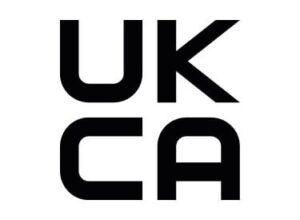DECLARATION OF CONFORMITY OF A COMPANY IN THE UNITED KINGDOM: EVERYTHING YOU NEED TO KNOW
The Declaration of Conformity of a company in the United Kingdom is an essential document for companies manufacturing or distributing regulated products within the UK market. Following the Brexit, compliance regulations in the UK have undergone significant changes, differing from European Union (EU) regulations. This article explains what declaration of conformity is, its importance, the key differences with EU regulations and the steps to comply with the current requirements.
What is the UK Declaration of Conformity?
 The UK Declaration of Conformity is a legal document issued by the manufacturer or authorised representative certifying that a product complies with applicable UK regulations and standards.
The UK Declaration of Conformity is a legal document issued by the manufacturer or authorised representative certifying that a product complies with applicable UK regulations and standards.
This document is a key part of the conformity assessment process and is required to mark a producer with the UKCA (UK Conformity Assessed) mark.
The UKCA marking replaces the CE marking in Great Britain (England, Scotland and Wales), however, in Northern Ireland, the CE marking remains valid under certain conditions.
Therefore, the Declaration of Conformity may vary depending on the market location.
Importance of the Declaration of Conformity in the UK
The UK Declaration of Conformity is a crucial document for several reasons:
-
-
- Legal compliance. It is a mandatory requirement to market products in the UK. The lack of a valid declaration can lead to penalties, withdrawal of products from the market and damage to business reputation.
- Safety Assurance. Provides assurance that the product complies with safety, health and environmental standards.
- Manufacturer’s liability. Defines the responsibilities of the manufacturer or importer in the event of problems with the product.
-
Differences between UK and EU declarations of conformity
Although UK and EU declarations of conformity are similar, there are some key differences due to the new post-Brexit regulations.
-
-
- UKCA marking vs. CE marking:
- UKCA marking is mandatory for products sold in Great Britain.
- CE marking is still accepted in Northern Ireland, under the Northern Ireland Protocol.
- Specific regulations. The Declaration of Conformity in the UK must refer to the relevant UK regulations rather than the European directives.
- Assessment bodies. Products requiring certification by a conformity assessment body must be approved by a UK accredited body.
- UKCA marking vs. CE marking:
-
Content of the UK Declaration of Conformity
A declaration of conformity must contain detailed information to demonstrate that the product complies with the applicable requirements. Common elements include:
-
-
- Identification of the product. Description, model or serial number.
- Manufacturer’s data. Name, full address and contact details.
- Applicable legislation. Reference to the UK regulations with which the product complies (for example, The Electrical Equipment (Safety) Regulations 2016).
- Standards applied. List of applicable British Standards (BS).
- Signature and date. Signature of the authorised representative and the date of issue.
- Details of the assessment body (if applicable). Name and number of the body that has carried out the conformity assessment.
-
Process for creating a valid declaration of conformity
-
-
- Identify applicable regulations. Determine the relevant UK laws according to the type of product.
- Conduct conformity assessment. Check that the product complies with the essential requirements by internal testing or by using an accredited assessment body.
- Draw up the declaration of conformity. Prepare a document containing all the above information.
- Keep the documentation. Keep the Declaration of Conformity and technical documentation for at least 10 years after the product has been placed on the market.
-
Examples of UK regulations
Some of the most common regulations that require a Declaration of Conformity include:
-
-
- The Supply of Machinery (Safety) Regulations 2008: for machinery.
- The Toy (Safety) Regulations 2011: for toys.
- The Electromagnetic Compatibility Regulations 2016: for electronic devices.
-
Conclusion
The Declaration of Conformity of a company in the United Kingdom is a fundamental pilar in ensuring that products meet the safety and quality standards required by UK legislation.
Manufacturers, importers and distributors must understand their obligations and ensure that documentation is accurate, up to date and compliant with the law.
Compliance not only protects the consumer but also safeguards a company’s reputation and avoids legal problems, enhances consumer confidence and facilitates the free movement of compliant products.
A clear, detailed and well-structured declaration helps companies demonstrate their commitment to safety and quality, which are crucial in highly competitive and regulated markets.




